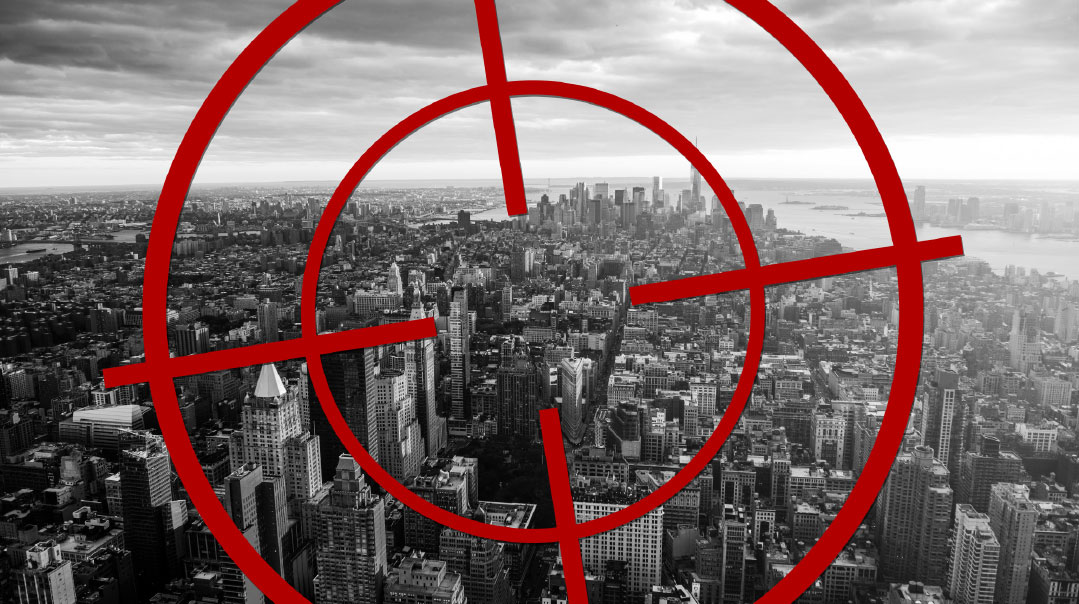Worst-Case Scenario

This is all assuming that Iran wants to build a nuclear weapon to use it, which is not at all obvious

Have you ever wondered if Israel could survive a nuclear attack?
I have, and not only because Iran threatens Israel with annihilation almost weekly. I also happen to live a few kilometers from a military base near Beit Shemesh that I assume would be a target for an Iranian strike.
Recently, I gained a little insight into this important but difficult issue by reading a strategic assessment authored by Dr. Ori Nissim Levy, an expert in nuclear defense and the chairman of the Nuclear Forum, an Israel-based research organization. His paper, “The Day After an Iranian Nuclear Strike,” was recently published by the Begin-Sadat Center for Strategic Studies.
Levy argues that a nuclear bomb detonated in a central Israeli city would not mean the destruction of the state.
Though it would be a painful blow and would likely cause tens of thousands of casualties, according to experts, it is possible that “only” 1,000 civilians would be killed. The parameters affecting the number of casualties would include whether the attack occurred during the day or night, the specific hour, whether it took place during a weekend, what the weather was like, and so on.
Now, obviously, even one death is too many, but given the power of a nuclear weapon (the most destructive bomb in the US arsenal today is 80 times more powerful than the one dropped on Hiroshima) casualties in the thousands, while horrific, is not the millions that I originally imagined.
Furthermore, the number of casualties does not increase in line with the number of bombs dropped. Dr. Yehoshua Sokol, chairman of the Academic Forum for Nuclear Awareness, estimates that even if 80 nuclear bombs detonated in Israel, 10 percent of the population would be injured and “only” 300,000 people would die, about 3 percent of the population (Rachmana litzlan).
“It would not be the end of Israel,” Dr. Levy said in an interview from his office in Ramla, Israel. “Israel could sustain a larger attack than other countries because it is used to emergencies. We have practice [with attacks] every day.”
Part of our limitation in imagining the true effects of a nuclear strike is that we’ve been biased by the pictures of the attacks on Hiroshima and Nagasaki during World War II. Those photos show a barren wasteland with few structures left standing. But Dr. Levy points out that Japanese homes at that time were built of paper and wood. Moreover, Japanese cities were overcrowded. Therefore, when the American bombs struck, the ensuing fires from the blasts did more damage than the blasts themselves. More people died from the fires and flying debris than the shock waves of the bombs.
This fact is especially relevant in today’s Israeli urban landscape. Since 1975, Israeli structures have been built to withstand earthquakes. Since 1991, every new apartment has been required by law to include a mamad, or safe room, that is built with 30-centimeter reinforced concrete walls. Those rooms can withstand a nuclear blast.
In any case, the real damage inflicted by a nuclear strike today would be the destruction of communication networks, power plants, and other infrastructure. A nuclear device has a so-called nuclear EMP (electromagnetic pulse) effect that would burn out electrical devices within a five- to ten-kilometer radius and destroy technological infrastructure. So much of life today takes place on digital bandwidth. Without it, life as we know it would cease.
But this is all assuming that Iran wants to build a nuclear weapon to use it, which is not at all obvious. Dr. Levy argues that the greatest advantage of possessing a nuclear weapon is using it as a lever of intimidation. As well, any state that attacks a nuclear-capable enemy must factor in the possibility of a nuclear reprisal.
In the case of Iran, Levy posits that the mullahs want to use a nuclear bomb for both reasons: as a factor of intimidation to enforce regional hegemony and as a defense against attack. But that doesn’t mean the regime would utilize a bomb offensively. “[Iran] wouldn’t necessarily use them,” Levy said. “I believe they would act like a normal state” — i.e., one that possesses nuclear weapons but acts rationally to manage them.
In the worst-case scenario, Dr. Levy writes, Israel is relatively well-prepared for a nuclear strike. “There is no question that Israel must prepare itself for the prospect of a nuclear Iran,” he writes, but “if a country is well-prepared, it can significantly reduce those weapons’ power to do it harm.”
Preparation — and many prayers.
(Originally featured in Mishpacha, Issue 782)
Oops! We could not locate your form.













